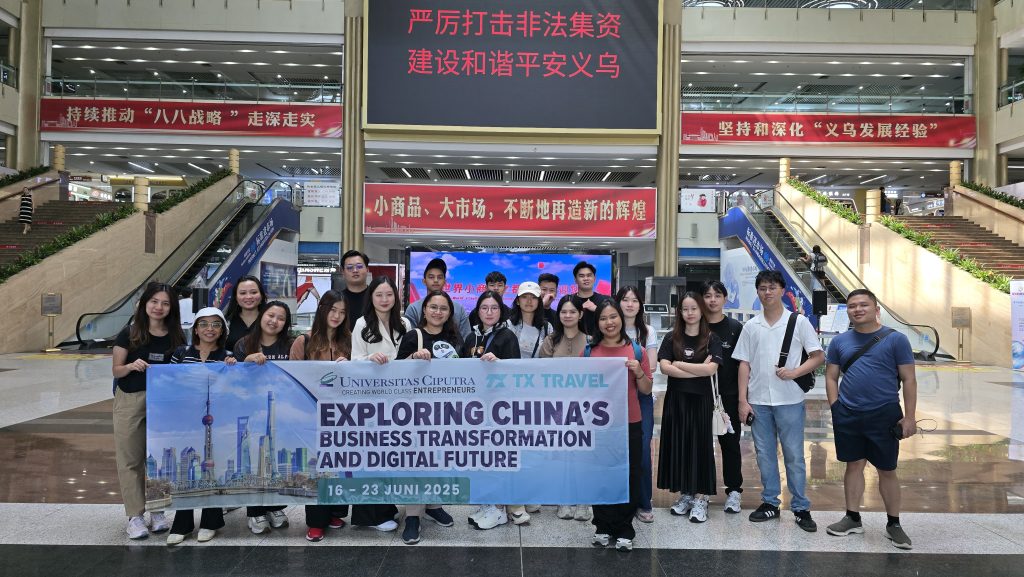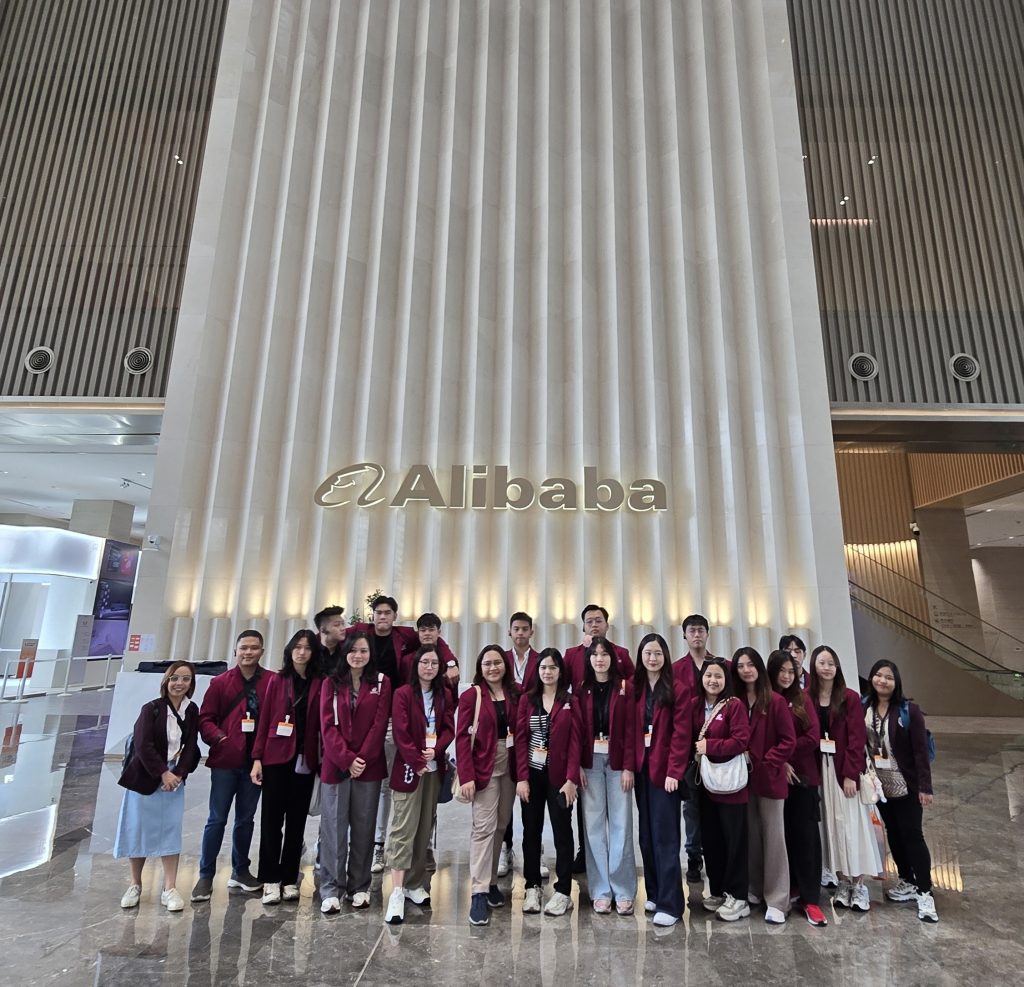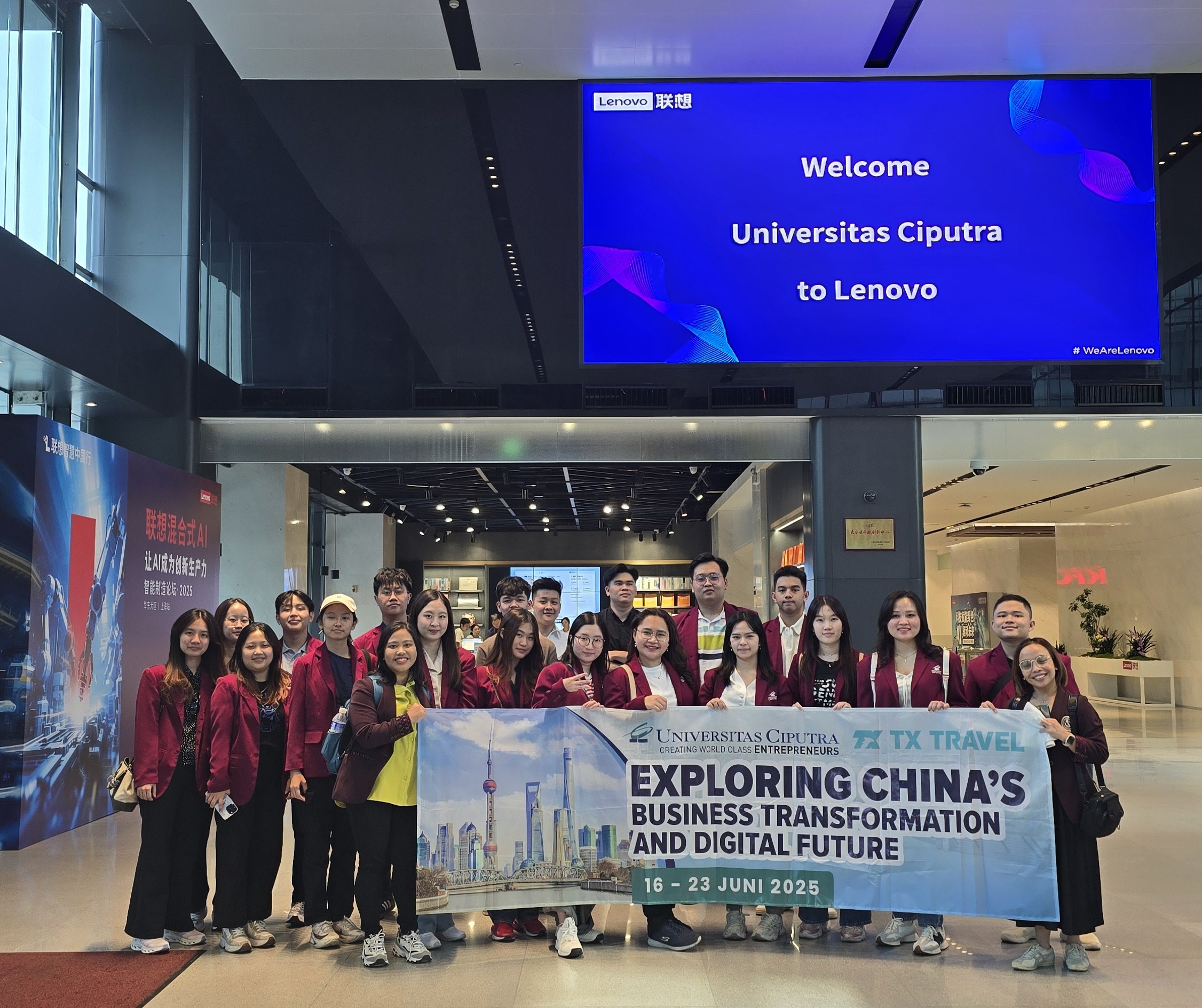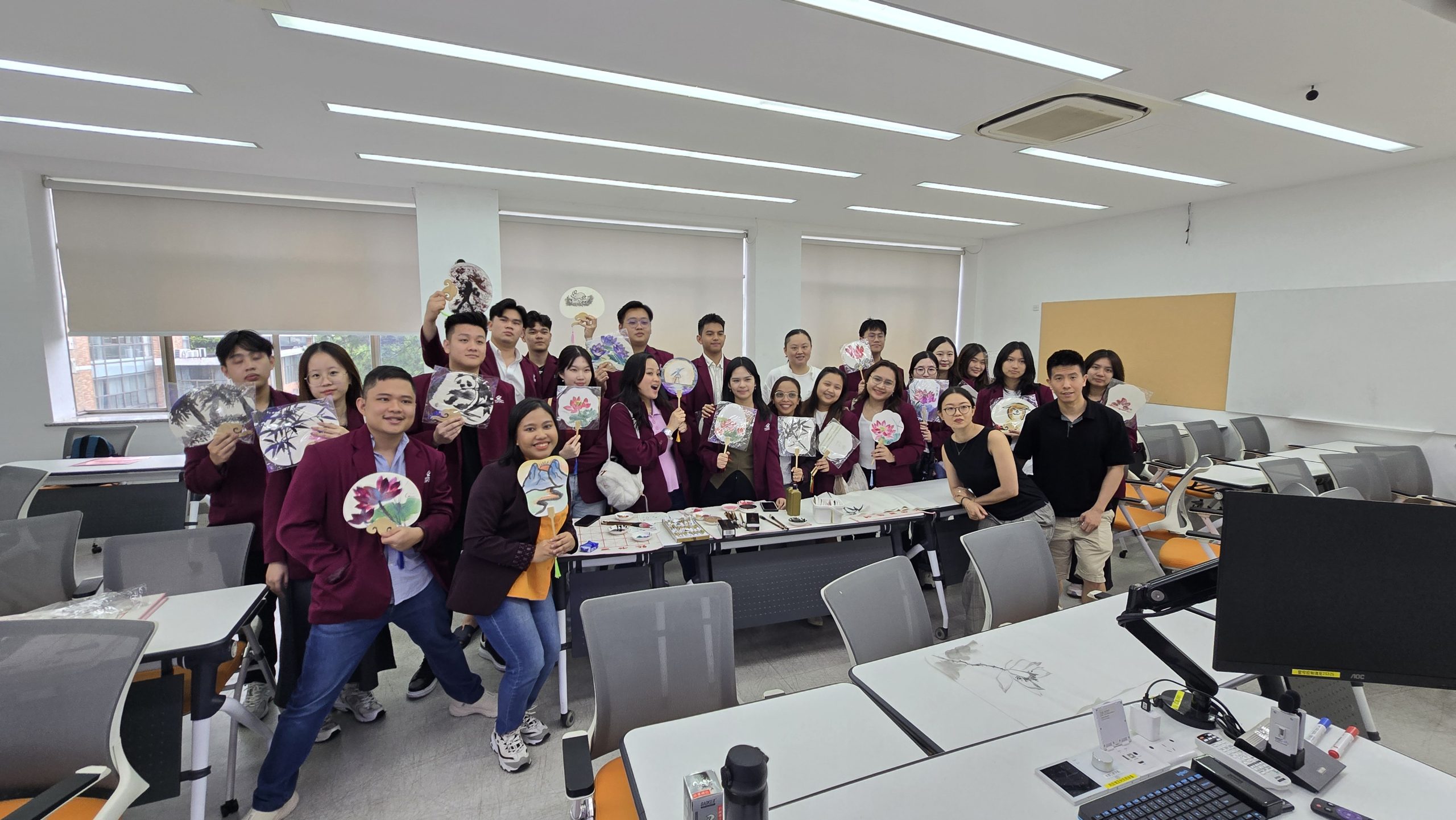From June 16 to 23, 2025, Universitas Ciputra’s academic delegation embarked on a transformative eight-day immersion tour across Shanghai, Yiwu, and Hangzhou — immersing students and lecturers in China’s dynamic business, technology, and innovation ecosystems. Far from just sightseeing, this journey was designed to blend cultural appreciation with exposure to some of East Asia’s most vibrant centers of trade, production, and forward-looking industry.
Yiwu: Inside the Engine Room of Global Trade
One of the highlights of the trip was a visit to Yiwu International Trade Market, often referred to as the world’s largest wholesale market. Students wandered through vast halls where everything from electronics to home décor is bought and sold in bulk — a living, breathing example of how global supply chains actually function. With its bustling negotiation floors and hyper-efficient logistics setup, Yiwu offered a firsthand glimpse into the sheer scale of commerce that drives global trade.

Alibaba and the Digital Silk Road
In Hangzhou, the delegation spent an immersive day with Alibaba Group, one of the world’s largest e-commerce and cloud computing companies. The session went beyond corporate presentations, diving into Alibaba’s technological infrastructure, smart logistics, and its ever-growing ecosystem of digital services.

The visit to Alibaba is particularly impactful due to a personalized class for Universitas Ciputra titled “Future Navigator: The Journey of AI Large Model“, an exploration of how AI, big data, and cloud tech are transforming every aspect of life and business in China. Students engaged in discussions around data ethics, algorithmic governance, and the role of platforms in shaping consumer behavior, bringing abstract business theory to life.
Lenovo Future Center: When Tech Gets Personal
Earlier in the itinerary, students had the opportunity to visit the Lenovo Future Center in Shanghai. This futuristic showcase offered more than flashy prototypes — it grounded discussions in real-world applications of AI, robotics, and next-gen consumer tech.

Students explored cutting-edge product design, sustainable innovation, and how Lenovo is integrating human-centric design principles in its hardware and software development. This visit provided an invaluable insight to the group in how technology can be used to further ease our lives, with around ten different technologies designed to meet human needs. One example was a smart city system capable of detecting the exact apartment and building location of a fire, automatically notifying the nearest fire department, and providing real-time tracking of fire trucks and water levels. Another notable technology involved an interactive car windshield integrated with navigation maps; users could touch the glass to access detailed information about nearby buildings they were interested in.
Zhejiang Sci-Tech: Innovation at the Root
On the return from Hangzhou, the group visited Zhejiang Sci-Tech University, where the group received a warm welcome from one of Universitas Ciputra’s university partner in the form of a class in hand-painting Chinese traditional fans.

Beyond the Itinerary
Of course, no visit to China would be complete without moments of reflection and awe: the group marveled from the 118th floor of the Shanghai Tower, strolled through Yuyuan Garden, and wandered the historic corridors of The Bund. These moments were not just leisure — they were opportunities to observe how China seamlessly blends old and new, east and west, scale and nuance.
As the group returned to Surabaya, it was clear that the trip had delivered more than stamps in a passport. It offered students a chance to engage with global systems up close, to witness the pace of innovation, and to rethink their roles as future business leaders in a region that is both deeply traditional and unapologetically modern.

